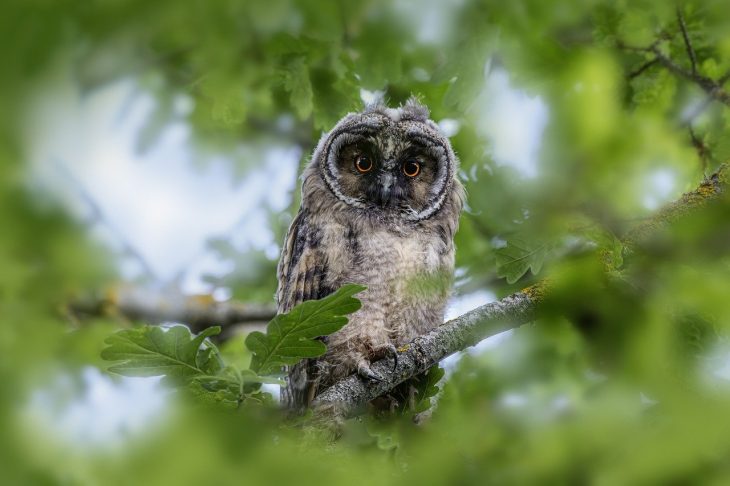The Would-Be Story-Teller

Hello, Readers!
Once upon a time, there was a person, and that person had inside of them a hundred-thousand worlds, filled with people and events; tales of incredible joy and woe. This person, who contained universes beyond count, had a desperate desire to share them with the world. But they hesitated. What if they weren’t any good? What if they shared these stories that they loved so dear, only to have the world sneer at them, turn their noses, proclaim them to be the worst stories ever told? So, in an effort to prevent that, they travelled the world, making a study of stories and how they’re told so that they might be able to learn the craft, learn how to emulate these stories that people told and loved, and make their own just as good. The stories didn’t have to be the best, but they had to be good.
The apprentice story-teller did not find the answers they sought. Only confusion. Each story-teller they encountered cited different things that made a story good.
“The characters,” said one.
“No, no,” said another. “Not the characters. The plot is paramount.”
Said yet another, “Phooey! No plot! Only vibes!”
“There must be a love story,” proclaimed one.
Another disagreed. “Oh no, love stories are trite and tired. Unrequited loves only. A love triangle, if you must.”
“Why choose?” said yet another.
“Never mind all that,” declared one. “Elegant prose that soars like bird through the clouds is what creates the finest of tales!”
“Are you mad?” exclaimed another. “Save that for poetry. Tight prose is best. Use only what words are absolutely necessary!”
This started a loud argument about the nature of prose, of language and whether musicality of the written word mattered at all. Confused and defeated, our young story-teller retreated from the world, no wiser than before. Always foremost in their thoughts what the as-yet unanswered question of what makes a story good?

Deciding that they would make an independent study of what makes a story good, the intrepid would-be story-teller grabbed every book they could find. All the stories that gained enormous followings, stories that did not, but whose readers were fiercely passionate about, stories by well-known authors whose name alone brought readers, stories by lesser-known authors whispered about in small circles. Each story was vastly different.
Some were beautifully written pieces that might be best described as poetry without the formatting. Some were terribly written, but yet still engrossing. Some were were terribly written and dull to the story-teller, yet wildly popular. Some had shining moments enough to keep the story-teller engaged; forgiven of their flaws. Some were so terrible that the story-teller could not bear to even finish them, and yet they had been selected to be brought to the public by experts in the field. Some were so easily devoured, they were told in a matter of hours. Some were so dense they took weeks to finish. Some were better heard than read, others better read than heard.
Many of them truly were good, yet there was no one formula for what made them so; no universal truth that made for good story-telling.
Once again confused and defeated, the would-be story-teller sat amongst their piles of books, mulling over each story, trying to find that thread that connected them, that thing that made them good (or not). Almost despairing, it was then that the would-be story-teller heard a knock on their little cottage door. They rose from their place on the floor and threaded their way through the piles of books to open the door.
There, on their doorstep stood a wizened figure in a cloak of owl feathers. Their face hidden by a deep hood, they leant heavily on a gnarled stick of thorny wood. “Some tea and biscuits for a weary traveller?” the mysterious figure croaked, as if many voices came from a single throat.
Never one to turn aside a request for food and rest, for it would anger the spirits, the would-be story-teller ushered the old traveller inside. There was little room for the traveller to sit, so they made themselves comfortable on a pile of books. They whispered their thanks as the would-be story-teller returned from the kitchen with a pot of tea and a plate of biscuits.
“What is all this, then?” the traveller enquired, waving vaguely at the piles of books.
“Oh,” said the story-teller, “I am trying to learn what makes a story good so that when I share mine, they will be be loved.”
“I see,” said the traveller, picking up their teacup. “Fortunate I have come, then, for I have some wisdom to impart to you on this very topic.”
“Oh?” our would-be story-teller asked, feeling excitement bubble in their chest. “Please, I beg you, tell me! Tell me what is the secret that makes a story beloved!”
“Are you sure you wish to know? I fear you will not like the answer.”
“Yes!” exclaimed the would-be story-teller. “Tell me!”

“First, let me ask you about all these stories.” Eyeing one of the piles, the traveller picked up a book. “Was this good?”
“I enjoyed that one immensely,” the would-be story-teller said.
“And this?” the traveller asked, picking up another book from a different pile.
“Oh. No. I did not like that one at all.”
“But it’s wildly popular, is it not?”
“Yes. I don’t understand why. I could not even finish it.”
“I see.” The old traveller cast a critical eye over more of the books from beneath their hood. “And what of this one?”
“Oh, I loved that one!” cried the would-be story-teller. “I must admit, the prose was not well constructed, but I was borne away nonetheless.”
“And this?”
“Beautifully written, but I did not love it, in truth.”
And so the old traveller pointed at various books and the would-be story-teller told their honest opinion. Finally, once the teapot had been drained and the biscuits all eaten, the old traveller pulled themselves up onto their feet with the aid of their staff.
“Well,” they said. “There you have your answer.”
The would-be story-teller blinked in surprise. “But,” they protested, “I am no closer to what makes to knowing what makes a story good! What secret is there that you have revealed?”
“Dear me,” the traveller said. “Is it not obvious? There is no secret. A story is good not because of its beautiful prose, or its winding plot. It is not the setting, nor the characters. My dear story-teller, a story is good not by by its craft alone. What makes a story good is whether it captures the reader, and leads them into its world. And this will be different for every reader, and even for different reasons.”
“Then,” wept the story-teller, “what am I to do? How can I tell a good story?”
“Calm, now, little world-builder,” the traveller said, patting the would-be story-teller’s hand affectionately. “What you must do is tell your stories. There are universes crying out for realisation. I can see them in your eyes. Sit now, and put pen to paper. Weave your worlds of words, for once they are written, they exist, and that is enough. It is not for you now to say whether they are good or otherwise. Your power is in the creation. It is the power of those experiencing them to cast judgement. So courage, little scribe. Write. The world will decide.” With a smile, the traveller shuffled out of the door. They paused on the stoop and turned. “Thank you for the tea.”
And with that, the traveller hobbled down the stairs and, to the great astonishment of the story-teller at the door, vanished as dust in a breeze.
Moral of the (admittedly heavy-handed) tale: Write. If you have a story you want to tell, write it. You might not become a celebrity author, but you will have created a universe from nothing but your imagination, and that is magic.
When S.M. Carrière isn’t brutally killing your favorite characters, she spends her time teaching martial arts, live streaming video games, and cuddling her cat. In other words, she spends her time teaching others to kill, streaming her digital kills, and a cuddling furry murderer. Her most recent titles include Daughters of Britain, Skylark and Human. smcarriere.com
Very good advice. For a school supply drive one year, someone had the idea to donate custom logo notebooks and pencils, with the notebooks saying “Write Here” and the pencils saying “Write Now.” Rarely do you ever hear of what happens to those school supplies, but I hope that person’s efforts encouraged some budding writers.
There’s a piece of writing advice that I know is well-meant, but I never know what to think of it: the work you are writing now should be your favorite work yet. Any perspectives on that one?
Oh! That’s an excellent question! Would you mind if I answered it in my next blog post?
Please do feel free! I would love to read your thoughts on the matter. Thank you!
Excellent! You have saved me from floundering for a topic!